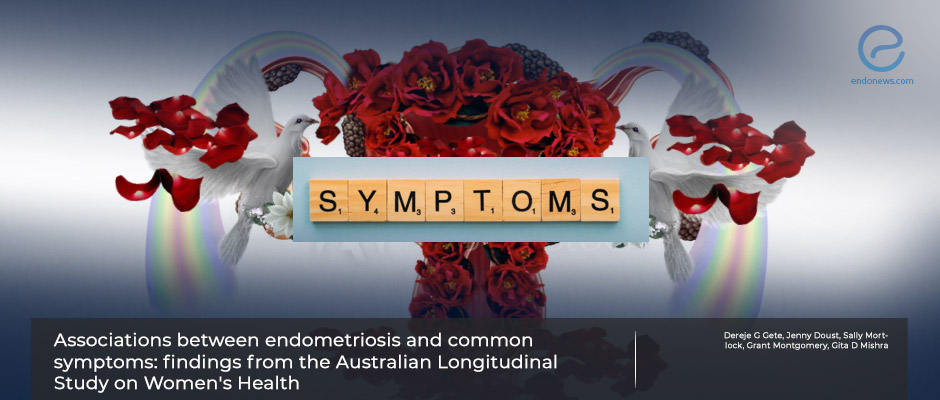Women With Endometriosis More Likely to Also Have Non-Specific Symptoms
Aug 29, 2023
Women with endometriosis do not just have menstrual symptoms, study says.
Key Points
Highlights:
- Women with endometriosis not only have more menstrual symptoms, but they are also more likely to have other non-specific symptoms and mental health problems.
Importance:
- Understanding the variety of symptoms that women with endometriosis experience can ensure they receive the appropriate care.
What’s done here:
- Researchers analyzed data from the Australian Longitudinal Study on Women's Health to explore the possible link between endometriosis and common symptoms.
Key results:
- Women with endometriosis had significantly more menstrual symptoms such as severe pain, heavy bleeding, and pre-menstrual tension.
- Women with endometriosis were more likely to suffer from anxiety and depression.
- Nonspecific symptoms such as allergies, severe tiredness, sleeping difficulties, and palpitations were more common among women with endometriosis.
- Women with endometriosis were more likely to have other forms of pain such as back pain, headaches, and joint pain.
- Women with endometriosis were more likely to have bowel and urinary symptoms.
- There was no association between endometriosis and skin problems, leaking urine, or breathing difficulties.
Limitations:
These findings are based on data from a single country and may not apply to women with endometriosis living in other parts of the world.
Lay Summary
Women with endometriosis are more likely to report menstrual symptoms, according to a new study published in the American Journal of Obstetrics and Gynecology. However, they are also at an increased risk of mental health disorders, other pain symptoms, bowel, and urinary symptoms, as well as non-specific symptoms such as extreme tiredness and sleeping problems.
These findings are important because even though endometriosis is known to be associated with a variety of symptoms, findings from longitudinal studies have not been consistent.
For the present study, a team of researchers led by Dr. Gita Mishra from the Australian Woman and Girls' Health Research Centre at the School of Public Health, Faculty of Medicine at The University of Queensland, in Brisbane, Australia conducted a prospective cohort study in 7606 women born between 1973 and 1978 to shed light on the possible link between endometriosis and common symptoms.
The team used data from the Australian Longitudinal Study on Women's Health. The women were surveyed every three years between 2009 and 2018. Women with endometriosis were identified using self-reports from each survey, during which they also completed a checklist on 24 different symptoms.
The results showed that there were significantly more menstrual symptoms among women with endometriosis compared to those without the disease. These included severe menstrual pain, heavy or irregular bleeding, and premenstrual tension, also known as pre-menstrual tension.
Women with endometriosis also had higher odds of mental health problems such as anxiety and depression.
Interestingly, other symptoms such as allergies, severe tiredness, sleeping difficulties, and palpitations were also more common among women with endometriosis compared to those without as were other forms of pain including back pain, headaches and migraines, and stiff or painful joints.
Finally, women with endometriosis were more likely to have bowel and urinary symptoms such as constipation, piles, heartburn, stings, and vaginal discharge and irritation.
The association between endometriosis and each symptom was similar regardless of whether or not endometriosis was surgically confirmed or clinically suspected.
The researchers found no association between endometriosis and the risk of skin problems, leaking urine, or breathing difficulty.
Research Source: https://pubmed.ncbi.nlm.nih.gov/37499990/
endometriosis symptoms anxiety and depression menstrual symptoms pain allergies

